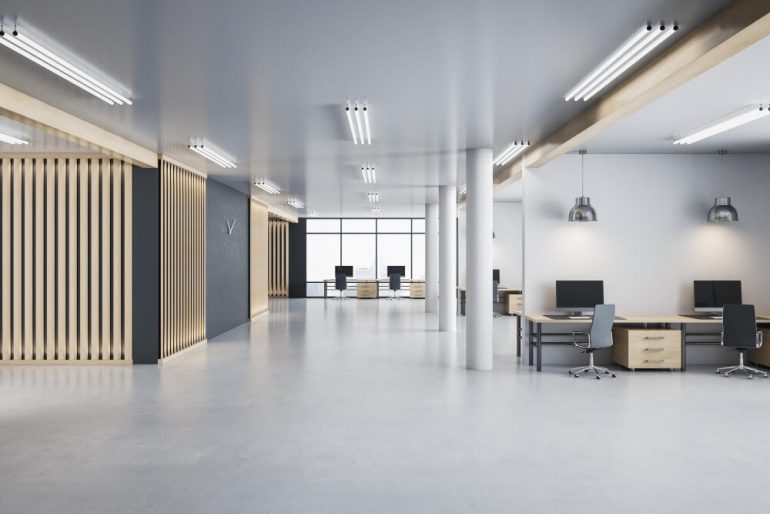In the fast-paced world of business, where style and practicality often take centre stage, there is one crucial aspect that is sometimes overlooked: safety. While attractive decor and efficient layouts may draw in customers and improve productivity, the condition of the floor beneath our feet can affect the well-being of everyone in the space.
Regarding commercial spaces, prioritising safety in flooring choices is not only the right thing to do but also a smart business move. Slips, trips, and falls on slippery or uneven surfaces can lead to injuries, legal issues, and decreased productivity, causing significant financial and reputational harm. Hence, it is crucial to ensure a safe and secure environment for employees, customers, and visitors by carefully selecting suitable flooring options.
Understanding the Risks
It’s no secret that commercial spaces come with their share of risks. The constant flow of people, occasional spills, and uneven surfaces create a breeding ground for accidents. To ensure safety, it’s vital to focus on three crucial aspects when selecting flooring for these spaces:
Slip Resistance: Avoiding accidents is crucial, especially in areas where spills are common, like kitchens, bathrooms, and lobbies. To ensure safety, consider using textured rubber, high-friction vinyl tiles, or slip-resistant ceramic. These options provide excellent grip, even when the floor is wet.
Shock Absorption: While concrete and marble floors may look stunning, they can be unforgiving when it comes to falls. To minimise the risk of injuries, it’s wise to choose materials like cushioned rubber flooring or carpet tiles for high-traffic areas. These options offer shock absorption, reducing the impact of falls.
Accessibility: Tripping hazards can be a major concern, particularly for individuals with disabilities. Uneven surfaces, raised thresholds, and loose mats can pose significant risks. To ensure accessibility, opt for flooring that is level, smooth, and securely attached. This will help eliminate obstacles that could potentially cause accidents.
Merging Material and Function
Every commercial space has its unique requirements and functions. Therefore, it is crucial to select the appropriate flooring that caters to the specific needs of the area:
- High-Traffic Zones: in areas with high foot traffic, such as hallways, lobbies, and retail stores, it is essential to opt for durable and abrasion-resistant materials like ceramic tiles, vinyl planks, or polished concrete. These options can withstand the constant movement and wear.
- Wet Areas: For moisture-prone areas like kitchens, bathrooms, and laundry rooms, it is vital to prioritise waterproof and slip-resistant options. Textured rubber, porcelain tiles, or epoxy coatings are excellent choices as they provide the necessary grip and prevent accidents.
- Offices and Workspaces: These benefit from flooring that offers good sound absorption and comfort underfoot. Carpet tiles or cushioned vinyl are ideal for promoting focus and reducing noise pollution, creating a conducive environment for productivity.
- Industrial Settings: In industrial settings where heavy machinery and chemicals are present, it is crucial to select robust materials that can withstand such conditions. Epoxy flooring or high-strength vinyl tiles are recommended for their durability and resistance to damage.
Remember, choosing the right flooring tailored to the specific use of the area ensures both functionality and longevity! And don’t forget to consult a Commercial Flooring Contractor for best results.





